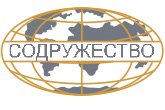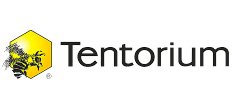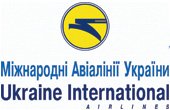Round tables
BEEKEEPING SCIENCE IN UKRAINE
Since 1814, when Petro Prokopovych devised the first frame beehive in the world, thus starting the era of rational beekeeping, scientific component of the beekeeping industry in this country has been very strong. Today, Ukraine boasts an extensive network of research and educational institutions in the beekeeping field: Prokopovych Institute of Beekeeping National Research Centre, specialized beekeeping sub-faculties at the National University of Life and Environmental Sciences of Ukraine in Kyiv and the S.Z. Gzhytsky Lviv National Academy of Veterinary Medicine, and many other state and independent research centers.
The main areas of scientific research include development of intensive beekeeping technologies, selection and breeding, processing and use of beekeeping products, development of methods of preventing and combating bee diseases and pests, study of nectar resources and development of efficient methods of using bees to pollinate entomophilous agricultural cultures, development and manufacture of new formulas of drugs, remedies, and food compositions based on beekeeping products, study of issues of beekeeping economy, elaboration of state standards and certification of beekeeping products.
This all represents a huge body of knowledge, which requires integration into and exchange with the world community. Many issues that Ukrainian apicultural science faces today will be a topic of discussion at this round table, which has gathered country’s most prominent scholars.
- Moderator:
- Sergiy Melnychuk, Director of the Ukrainian laboratory of quality and safety of AIC products, Scientific Coordinator of the XXXXIII International Apimondia Congress
- Invited speakers:
-
- Oleksandr Halatyuk, Director of National Scientific Center “P. I. Prokopovych Institute of Beekeeping”, Doctor of Veterinary Science, Professor, Ukraine
- Serhiy Buhera, Deputy Director for Research of National Scientific Center “P. I. Prokopovych Institute of Beekeeping", PhD in Agricultural Sciences, Ukraine
- Philip McCabe, The President of the Regional Commission "Europe" of the International Federation of Beekeepers’ Associations-Apimondia
- Dmytro Yanovych, Deputy Director, Chief of Laboratory of Instrumental Methods of Analysis The State Scientific-Research Control Institute of Veterinary Preparations & Feed Additives, Doctor of Agricultural Sciences, Ukraine
- Evgeny Rudenko, Institute of animal science National Agrarian academy of science of Ukaraine
- Oleksiy Losyev, The National University of Life and Environmental Sciences of Ukraine
- Valentina Dzitsyuk, The National University of Life and Environmental Sciences of Ukraine
- Leonid Bodnarchuk, Adviser of P. I. Prokopovych Institute of Beekeeping National Research Centre (Kyiv), Ph.D. in Biological Sciences, Professor, Ukraine
- Volodymyr Afanasenko, Dean of the Biotechnological Faculty of the Lugansk National Agrarian University, Ph.D in Agricultural Sciences, Docent, Ukraine
- Olga Yatsenko, Faculty of International Economics and Management of Kyiv National Economic University named after Vadym Hetman", Doctor of Philosophy in Economy, Professor, Ukraine
- Olena Metlitska, Doctor of Agricultural Sciences, Institute of Animal Breeding and Genetics NAAS of Ukraine
- Olexandr Papchenko, Lugansk National Agrarian University, Ukraine
- Yarnykh Tetyana Grygorivna, Honored Worker of Science and Technology of Ukraine, Doctor of Science in Pharmacy, Professor, Head of the Department of Technology of Drugs, National University of Pharmacy, Ukraine
- V. Papp, National Sciences Centre “P.I. Prokopovych Beekeeping Institute”, Ukraine
- Oleksandr Tykhonov, Head of the Department of Pharmaceutical Technology of the National Pharmaceutical University (Kharkiv), Academician, Ukraine
- Valeriy Brovarskyy, Phd in Agricultural Sciences, Ukraine
ORGANIC AND NATURAL BEEKEEPING
Where do we stand in the development of organic beekeeping today? What are the markets? What are the essential elements differentiating a honey produced according to biological criteria from another honey? How effective are the controls, that are the most discriminating criteria? Necessity of further amendments of Commission Regulation (EC) No 889/2008, and why the percentage of organic beekeepers in different countries remains relatively low? This is one of those questions that should be answered with the help of specialists in this round table.
- Moderator:
- Klaus Wallner, University Hohenheim, Apiculture Institute, Germany
- Invited speakers:
-
- Etienne Bruneau, President of the beekeeping department of COPA (Committee of Professional Farmer Organisations of the EU), COGECA (General Committee of the Farmer’s Cooperation of the EU), Delegate Administrator of CARI (Belgium Beekeeping Centre for Research and Information), The President of the Scientific Commission “Beekeeping Technology ” of the International Federation of Beekeepers’ Associations-Apimondia
- Nicola J. Bradbear, The President of the Scientific Commission “Beekeeping for Rural Development” of the International Federation of Beekeepers’ Associations-Apimondia, United Kindom
- Maureen Maxwell, The President of the Regional Commission “Oceania”, of the International Federation of Beekeepers’ Associations-Apimondia, New Zeland
- Mulufird Ashagrie, The President of the Regional Commission “Africa” of the International Federation of Beekeepers’ Associations-Apimondia, Ethiopia
- Dinh Quyet Tam, The President of the Scientific Commission “Beekeeping Economy” of the International Federation of Beekeepers’ Associations-Apimondia, Vietnam
- Francesco Panella, President of UNAAPI (Italian Union of Beekeepers)
- Mohamed Salah Elmasarawy, Department of Economic Entomology, Faculty of Agriculture, Cairo Univ. Egypt
- Miguel Vilas-Boas, Mountain Research Centre (CIMO), Polytechnic Institute of Bragança, Portugal
- Ulrich Broeker, APICON Consulting, Germany
- Sandra Garces, ALCONT (Asociacion Latinoamericana de Continuidad), Spain
- Marco Lodesani, Consiglio per la Ricerca e la Sperimentazione in Agricoltura, Italy
- Adrian Siceanu, Institute for Apicultural Research and Development, Romania
- Valentina Cebotari, Inspector Institute for Ethics and Evironnmental Certification in Republic of Moldova, Institute of Zoology, Academy of Sciences of Moldova
- Ansgar Westerhoff, Germany
- Remy Vandame
- Stefan Bogdanov, Researcher, Swiss Bee Research Centre, Ph.D.
- Evgeny Rudenko, Institute of animal science National Agrarian academy of science of Ukaraine
CONSERVATION OF ENDANGERED DIVERSITY OF BEE POPULATIONS
There is clear evidence of recent declines in both wild and managed bees, which face many common threats, such as pathogens, agro-chemicals, poor nutrition, habitat loss and reduced genetic diversity. The beekeeping manipulations, commercial breeding and migratory beekeeping as well as the trade in honey bees often result in the loss of genetic diversity that is considered as one of the possible factors in the current bee losses, experienced nearly worldwide. To safeguard bee biodiversity requires close cooperation across a range of scientific and beekeeping disciplines. Sustainable management practices and adequate emergency measures are hampered by the lack of understanding of the relative importance and geographic variability of local bee populations. It is necessary to disseminate the knowledge based on the experience of any attempt to preserve local bee populations.
The discussion is open for any suggestions concerning
- the measures needed to control the trade of bees worldwide,
- the ideas and methods focused on the detection and conservation of the natural heritage of bee diversity,
- the development of related breeding strategies and the perspectives of the impact of beekeeping activities on honey be diversity.
- Moderator:
- Maria Bouga, Agricutural University of Athens, Greece
- Invited speakers:
-
- Karl Crailsheim, Department of Zoology, Karl-Franzens University Graz, Austria, Apimondia, The President of the Scientific Commission “Bee Biology” of the International Federation of Beekeepers’ Associations-Apimondia
- Eliza Cauia, Institute for Apicultural Research and Development, Romania
- Olena Metlitska, Institute of Animal Breeding and Genetics NAAS of Ukraine
- Peter Kozmus, Agricultural Institute of Slovenia; Beekeeping Association of Slovenia
- Per Kryger, Aarhus University, Dept. Agroecology, Denmark
- Cecilia Costa, Agricultural Research Council (CRA), Research Unit for Apicolture and Sericulture CRA-API, Bologna, Italy
- Pilar De la Rúa, Área de Biología Animal, Dpto. de Zoología y Antropología Física, Facultad de Veterinaria, Universidad de Murcia, Murcia, Spain
- Maria Alice Printo, Mountain Research Centre. Polytechnique Institute of Bragança - Campus de Santa Apolónia, Bragança, Portugal
- Lionel Garnery, CNRS, Laboratoire Evolution, Génomes et Spéciation, UPR 9034, CNRS, Gif-sur-Yvette, France
- Marina Meixner LLH Bieneninstitut Kirchhain, Germany
- Walter Steven Sheppard, Department of Entomology, Washington State University, USA
GMOs AND IMPACT ON THE BEEKEEPING SECTOR
The problem of required labeling of honey containing GM pollen on the European market severely disrupted the global market for honey. The EU is the largest importer of honey. Although the administrative solution to avoid this label was made, pollen which is not allowed in the European Union prohibitedly remains in honey. With the help of experts this roundtable should point out various aspects related to this problem: impact on consumers, difficulty of analysis of GM pollen in honey, beekeepers economic impact, management of apiaries in the presence of GM crops
- Moderator:
- Walter Haefeker, The Coordinator of the Apimondia Working Group 10 “GMOs and impact on the beekeeping sector”, European Professional Beekeepers Association, Italy
- Invited speakers:
-
- Alexandros Papachristoforou, Laboratory of Animal Physiology, School of Biology, Aristotle University of Thessaloniki, Greece
- Maureen Maxwell, The President of the Regional Commission “Oceania” of the International Federation of Beekeepers’ Associations-Apimondia, New Zeland
- Dinh Quyet Tam, Apimondia, The President of the Scientific Commission “Beekeeping Economy”, Vietnam
- Lucas Daniel Martínez, The President of the Beekeeping Federation in Argentina, Vice-president of the International Federation of Beekeepers’ Associations-Apimondia
- José Gomercindo Corrêa da Cunha, The President of the Regional Commission “America” of the International Federation of Beekeepers’ Associations-Apimondia
- Philip McCabe, The President of the Regional Commission "Europe" of the International Federation of Beekeepers’ Associations-Apimondia
- Noberto Garcia (Argentina)
- Francesco Panella, The President of UNAAPI (Italian Union of Beekeepers)
- Claire Kremen, professor of conservation biology at University of California, Berkeley, USA
- Charles Benbrook, the Center for Sustaining Agriculture and Natural Resources, Washington State University, USA
- Angelika Hilbeck, Senior researcher, Geobotanical Institute, Swiss Federal Institute of Technology, Switzerland
- Jacob Peter van Praagh, Deutscher Imkerbund e.V.,Germany
- Fani Hatjina, Hellenic Institute of Apiculture, Dimitra Greek Agricultural Organisation, Greece
- Ignacio Chapela, University of California Berkeley, USA
BEES AND PESTICIDES
The widespread declines especially of managed honey bee population reported the last years, have serious consequences on global ecosystem services of pollination and on beekeeping income. Older and recent studies have implicated the role of pesticides in these declines, as exposure to these chemicals has been associated with changes in bee behaviour, reductions in colony production, increased incidences of diseases prevalence.
In conjunction with the fast evolution of treatment technologies that has lead to the use of new generation of systemic products (e.g. the neurotoxic nicotinoids), there is an increasing and urgent need to disseminate information on the last scientific advances to the beekeeping community by bringing together international experts from different sectors for an open scientific debate on key issues related to the current state of the art on bees behaviour, monitoring schemes, testing and risk assessment of all kinds of pesticides.
While the protection of plants is more important for a farmer than hive products, the protection of hive products and bees themselves is more important for a beekeeper than the protection of plants. In the case of incidences of honey bee losses, beekeepers are suggesting different causative reasons than that usually sanctioned by government officials and chemical companies.
Discussion points
- Will the controversial Europe-wide ban on neonicotinoids help the plight of the bee? Is the time long enough? What are the measures needed to be taken during this period?
- Which could be the possible new laboratory and field tests to homologate the sub-lethal effects in order to increase the scientific evidence?
- What are the most advance appropriate procedures for the registration of new products?
- Are there any detoxication methods/ procedures?
- Given the consensus reached among scientists about the multifactorial origin of bee colony losses, which stressors should be regarded in interaction with the pesticides?
- Could we have a global approach of all pesticides and not these huge differences existed between EU and US for example (including registration rules and MRLs)?
- Should we, bee keepers and bee scientists lead a campaign informing and convincing the farmers and the governmental agencies for the use of only ‘bee-safe’ products? Which are the ‘bee-safe’ alternative and efficient pest control strategies?
- Moderator:
- Dr. Fani Hatjina, Hellenic Institute of Apiculture (Hellenic Agricultural Organization ‘DEMETER”), Greece
- Invited speakers:
-
- Wolfgang Ritter, Head of OIE Reference Lab. at CVUA Freiburg, Animal Hygiene, President of the Scientific Commission “Bee Health” of the International Federation of Beekeepers’ Associations-Apimondia
- Marek Chmielewski, Insect Biocontrol Unit, Department of Epizootiology,Faculty of Veterinary Medicine University of Life Sciences in Lublin, Poland
- Jacobus Biesmeijer, The President of the Scientific Commission “Pollination and bee Flora” of the International Federation of Beekeepers’ Associations-Apimondia, United Kingdom
- Jeff Pettis, Vice president of Scientific Commission Bee HEALTH USDA-ARS Bee Research Laboratory
- Agnes Rortais, EFSA
- Luc Belzunces, Institut Nationale de la Recherche Agronomique, Avignon, France
- Axel Decourtye, Association de Coordination Technique Agricole, Institut Claude Bougelat, Marcy L'Etoile, France
- Piotr Medrzycki, Consiglio Nazionale per la Ricerca e la sperimentazione in Agricoltura (CRA), Italy- piotr.medrzycki@entecra.it
- Fabio Sgoliastra, Dipartimento di Scienze e Tecnologie Agroambientali, Università di Bologna, Italy
- Ales Gregorc, Agricultural institute of Slovenia
- En-Cheng Yang, Department of Entomology, National Taiwan University, Taipei, Taiwan
HONEY ADULTERATION
Nowadays world honey market is directly concerned with the adulteration of the products. Honey, wax, propolis, royal jelly and even pollen can be influenced. In some cases beekeepers are involved and in other cases, it's honey packers or distributors who are directly implicated in these falsifications. The techniques used can be very sophisticated and new research must be put in place in order to find these frauds. In this context, the price of the controls is increased every year and represents an overload for the conditioners and the consumer. Due to the fact that we are on a world market, the honey adulteration has a direct impact on the price and on the natural image of the bee products. This roundtable will discuss these aspects with different specialists concerned about this problem that threatens the profitability of apiaries.
- Moderator:
- Maureen Maxwell, The President of the Regional Commission “Oceania” of the International Federation of Beekeepers’ Associations-Apimondia, New Zeland
- Invited speakers:
-
- Nikola Kezic, Faculty of Agriculture, University of Zagreb, Croatia
- Ralph Buchler, Landesbetrieb Landwirtschaft Hessen, Bieneninstitut, Germany
- Gudrun Beckh, Quality Services International, Germany
- Philip McCabe, The President of the Regional Commission "Europe" of the International Federation of Beekeepers’ Associations-Apimondia
- Etienne Bruneau, President of the beekeeping department of COPA (Committee of Professional Farmer Organisations of the EU), COGECA (General Committee of the Farmer’s Cooperation of the EU), Delegate Administrator of CARI (Belgium Beekeeping Centre for Research and Information), The President of the Scientific Commission “Beekeeping Technology and Quality”, Belgium
- Noberto Garcia (Argentina)
- Yue-Wen Chen, Professor & Dept. Head of Biotechnology and Animal Science, National I-Lan University, President of Taiwan Apicultural Society, Taiwan
- Karyne Rogers, National Isotope Centre, GNS Science, New Zealand
- Lutz Elflein Intertek, Intertek Food Services GmbH, Germany
- Saleh Saleh Nezhad, Research and Development of Saleh Honey Institute, Mashad, Iran
- Dhananjay Wakhle, Scientist, Vidya Pratishthan School of Biotechnology, India










